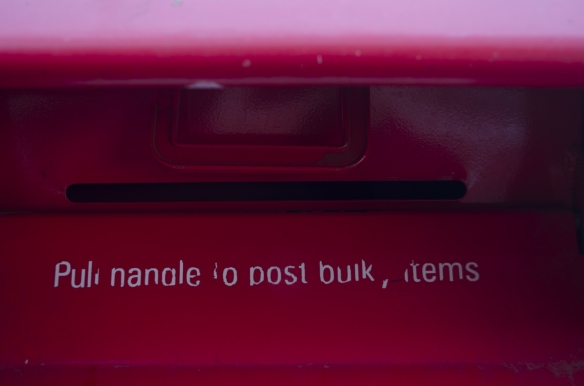Today is the Winter Solstice in the Southern Hemisphere. Last night I walked around Lake Burley Griffin, and the energy was the opposite to what I had imagined, leading up to this shortest day of the year. Instead of feeling hunkered down and small, I felt enlivened, expansive and playful. From under Kings Ave Bridge I watched the lights on the water as cyclists hurtled past, and fellow solstice seekers strolled by in the shadows, the week’s work behind them, on their way to the weekend and all its promise, so near to the turning point of the year, feeling the tilt of the earth. I do feel introspective though, as well as energetic, and it is a great feeling.
I would like to share some letters l wrote a little while ago. The shortest day of the year seems to be saying something about time to me, and it has reminded me of these letters, these fragments. A student asked me to write about teaching, for an anthology they were editing. I preferred to turn it around and write about the experience of being taught, instead, and acknowledge those continuing connections with teachers through memories and emotions. Students, teachers, we are all the same really, learning together, in my view. My student didn’t end up using the the letters for their project, but I was glad I wrote them. At the time I called the little series Primary and Secondary. The letters are not the sort to be sent, most of the people I was writing to are dead. I felt compelled to write to them anyway. (In The New Diary, Tristine Rainer writes of the ‘unsent letter,’ as a useful technique in journal or diary writing. I love this thoughtful book, I recommend to anyone keeping a journal, or wanting to practice writing.) It just occurred to me that in a way I am sending the letters, by including them in this post, by ‘posting’ them. Why not? The first four are to primary school teachers, and the last is to a high school teacher.
Dear Mrs Sinclair,
Thank you again for writing to me. I know I sent you a card at the time, but I feel I have to write again.
When I read your letter, I imagined you flipping through ‘She’s a train and she’s dangerous‘ in the book store (probably in the feminist or women’s writing section) and recognising my name and reading ‘In the House Alone’. (In my mind I still look up at you as if I was a child. I stand by you, waiting.) Your letter made me remember school and teachers and I often recall that care you took to contact me. You know I like to write in fragments. And you have a literary bent, so you wouldn’t mind the epistolary form of this little letter/narrative. The fact that you remembered me when you saw my name or read my story really touched me and I often think of that.
I remember you taking us to Liggins – and the primary school library (which was in a room next to the hall), and how special that was, walking through the rows of books, the bookcases at child height, and the wonder of it, the library card, the blue stamp, the book to take home in my library bag. I remember lining up at your desk to receive my next reading card, wondering what colour it would be.
I have been teaching for awhile now, and though I mainly teach adults, it is my school teachers I often recall when reflecting on teaching. I remember the weave of the cloth on the sleeve of your jacket as you paused beside my desk, watching me write and copy. ‘Yea, though I walk through the valley of the shadow of death, I will fear no evil, For thou art with me …’ I remember your greying hair, the smell of your face powder, your poise …
Dear Mrs MacDonald,
Thanks for reading to us in the afternoon. The sorrow and love of The Incredible Journey still rises within me, forty years later, and the memory of the hot open windowed afternoons of our story time, and your voice in the stillness after the busy morning. I remember your stories that weren’t from books as well, about the Vikings and their Long Boats and how Germany couldn’t invade England but they did in those boats, and about Nature and God’s perfection, and Man’s imperfection.
Mrs Mac, I remember the end of year afternoon tea at your house, your shadowy cottage, the cakes on the table, the wild heavy blooms at your front door as we stood on tip toes to ring the front door bell …
Dear Mrs Newell,
I remember your authority, your thin wiry way, your tight curls gliding above the song of the times tables. Do you remember the arm that rose unexpectedly from the centre row – and the question – ‘What happens to a child when they die?’ You gave such a certain answer – ‘They go straight to heaven,’ you said. Your voice was so clear and certain. What peace you gave me! I wonder, were you asked that question very often?
And Mrs Newell, you had a pool! And a pool party! We floated there at the end of the year. After our parents left, your pale daughter sat in the shade sipping coke, in her bikini and dark glasses, her white hair shining, as we lolled and splashed …
Dear Miss Heath,
I’ve written about you before, and now I want to write to you. I think of you, Miss Heath. I think of your back and up stretched arm as you drew on the blackboard at the beginning of each season. You were in the classroom early, framing the lessons on that giant blackboard, with summer’s breaking waves and spray, with autumn ‘s burnt leaves, winter’s ice cave of blue and white and spring’s chalky tulips, spring’s bursting leaves. And in the frame of your art must have been our introduction to words and numbers and grown up time, (the day, the date, the month, the year).
I realise now you were an artist. At the reunion Miss Stuart told me. ‘Oh, she died’. Your horn rimmed glasses and French knot or your soft hair falling on your shoulders when it was out, were beyond the ken of the Canteen Mothers and their perms – and you rated as a plain (single) woman, (very kind) – a kindergarten teacher. The pleat of your skirt brushes my shoulder as I sit cross-legged and you lean down to turn the page with me.
I lined up with my big sister at the New Theatre to buy the tickets to a play she wanted to see, and there you were selling them at the box office. My mother was glad you had something to do on the weekend. I remember your smile …
Dear Mrs Plimer,
I think you may still be alive and not that far away— that is a good feeling. It is nearly ten years since I spoke to you. I rang you during the bush fires to see if you needed help. I knew the fire was heading towards you. Dear woman, you were packing the car with your research, and were about to leave. You were prepared and strong. When help is needed we try to give it. For weeks you arrived at my house in the morning and helped me into the front seat, put my crutches into the back of your car, and then drove me to school. They were fun weeks of being late to class, careening down halls on my crutches, of healing from my accident, of people making a fuss of me. I think now, looking back, you were helping my mother. She was (and is) strong, but others must have seen her need, that she was alone. I remember small gestures, friends stepping forward to help, your care.
with love
Sarah
For this Winter Solstice ‘Invitation to Write,” write a letter to a teacher. (Hopefully a fond one!) Or to someone from the past that you think of. I’d love to read them. Post them to the comments section, and if you like we can publish them together in a later post. Or write it just for yourself, and them – see what happens.


